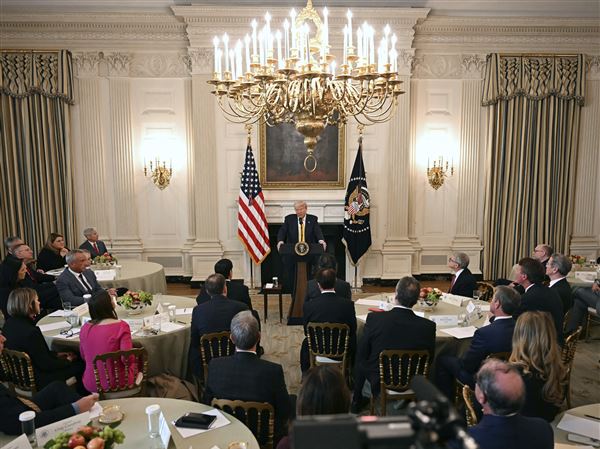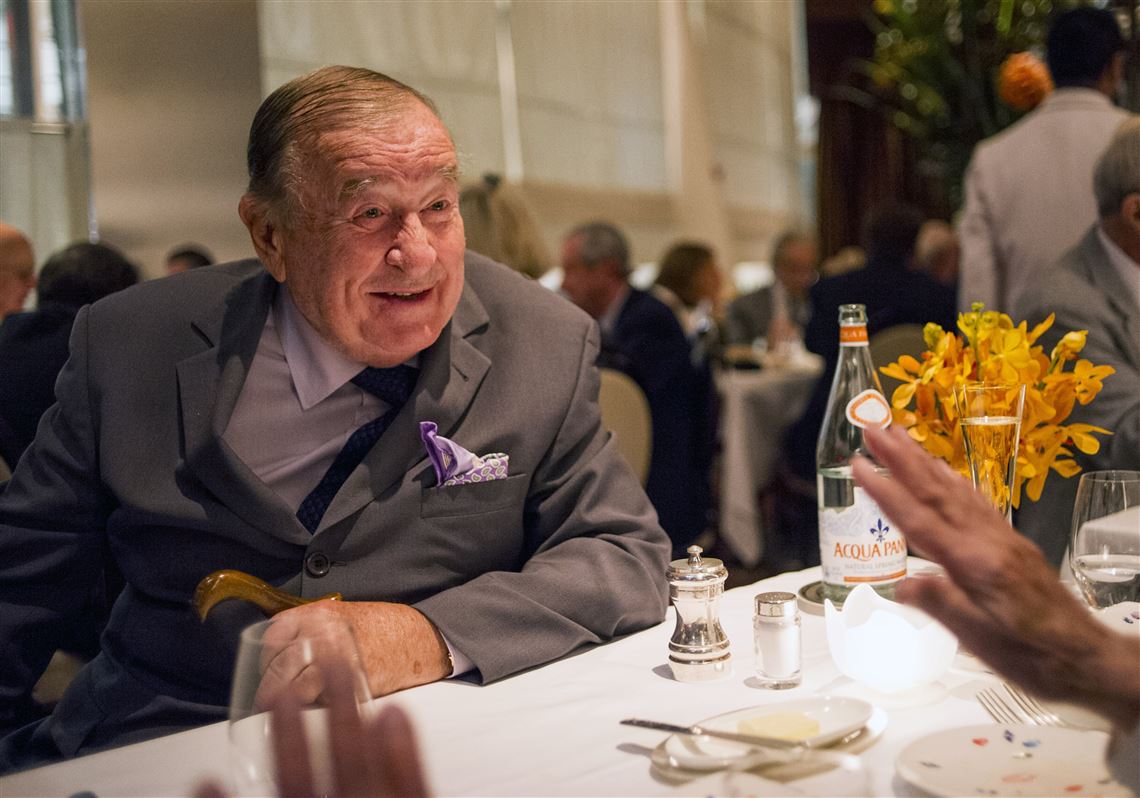Sirio Maccioni, a Manhattan restaurateur who made Le Cirque a headquarters for Manhattan’s rich and powerful in the 1980s and ’90s, and put dishes such as pasta primavera and crème brûlée on the culinary map, died on Monday in the town where he was born, Montecatini, in Tuscany, Italy. He was 88.
His son Mauro confirmed the death through a family friend. Mr. Maccioni maintained a home in Montecatini as well as one in Manhattan.
Dash, charm and matinee-idol looks helped make Mr. Maccioni an unusual sort of celebrity from the moment in the early 1960s that he took over as the maitre d’hotel at the Colony, a darling of New York’s cafe society. “Our beloved Colony has a new maitre’d,” Henry Luce wrote in Time magazine. “He’s young, he’s elegant, he’s smart.”
Mr. Maccioni’s talent for cosseting high-strung, demanding clients like Stavros Niarchos, Frank Sinatra and the duke and duchess of Windsor elevated him to the status of trusted adviser, fixer and social gatekeeper.
After the Colony closed its doors in 1971, Mr. Maccioni, in partnership with the Colony’s onetime chef, Jean Vergnes, opened Le Cirque in the Mayfair Hotel at Park Avenue and East 65th Street in 1974.
It was an instant smash. Years of working in the hotel and restaurant business in Europe and the United States had won Mr. Maccioni an international following that included royalty, film stars, jet-setters and socialites. Where he went, they followed.
Shrewdly, he also began courting a new clientele, the real estate tycoons, fashion industry movers and Wall Street brokers who flourished during the Reagan years and joined, in tabloid parlance, the “boldface names.” They were the glamorous set whose doings fed the columns of The New York Post and Women’s Wear Daily, and whose foibles Tom Wolfe satirized in “The Bonfire of the Vanities.”
“Le Cirque came along at a time when fashion was important and gossip was powerful,” said Gael Greene, who chronicled the ups and down of Le Cirque and its successor, Le Cirque 2000, as the restaurant critic of New York magazine. “It was the beginning of the era of dining out as theater and intrigue, when restaurants were not just a place to have lunch.”
Sirio Maccioni was born on April 5, 1932, in Montecatini, a spa town where the family owned a small farm. His father worked there as a concierge.
When Sirio was 6, his mother died after a throat infection had developed into pneumonia. His father died during World War II in an Allied bombing raid in 1944.
“He swore that I was never, ever to go into restaurants, or hotels, unless it was with a beautiful woman and I was staying there as a guest,” Mr. Maccioni said of his father in the book “Sirio: The Story of My Life and Le Cirque” (2004), written with Peter Elliot. “He said he’d kill me first.”
Nevertheless, as Italy began to rebuild after the war, Mr. Maccioni enrolled in the hotel school in Montecatini and trained as a waiter.
After working at the town’s top hotel, La Pace, he went to Paris and started at the bottom at the Plaza Athénée. The actor Yves Montand, who was also from Montecatini, took him under his wing, introduced him to high society and found him work at Maxim’s. It was there that Mr. Maccioni developed his philosophy of running a restaurant.
“Give the people what they want,” he said in the autobiography. “If they want a whole fish, grilled, then give it to them. Don’t give away the best table, so that it’s there when you need it. Give the early people the center tables, so they think they are important. Never have an empty table in the room. Do the impossible. Never say no.”
Mr. Maccioni arrived in Manhattan in 1956 and worked as a waiter at Delmonico’s, in the financial district, and eventually managed its dining room before graduating to the Colony. The Colony, along with the 21 Club and Le Pavillon, epitomized fine dining at the time, and Mr. Maccioni, within a few years, was overseeing the front of the house.
When the Colony closed, Mr. Maccioni opened La Forêt, a restaurant, lounge and nightclub, at the Pierre Hotel on Fifth Avenue. When the hotel was sold in 1972, William Zeckendorf Jr., a member of the Manhattan real estate dynasty and a keen epicure, offered him space in the Mayfair, a residential hotel that the family had acquired.
Mr. Maccioni envisioned a bistro elevated to haute cuisine standards, with a relaxed Italian style more congenial to the up and comers of his own generation.
“I encouraged beautiful people, interesting people, people of different races and colors,” he said in the autobiography. “Mostly I liked people my age. They were the people doing things, making the world, changing the world. So many people, but they were all very interesting, very exciting people.”
A parade of talented chefs, many of them unknowns on their way up, worked at Le Cirque, including Alain Sailhac, Geoffrey Zakarian, David Bouley, Sottha Kuhn and Jacques Torres, who created one of the restaurant’s signature desserts, a chocolate stove.
Most notably, Daniel Boulud ran the kitchen from 1986 to 1992.
Le Cirque was always open to the charge of being snobby and elitist. Mr. Maccioni, critics complained, played the courtier to his important guests but pointedly ignored the diners who were not Henry Kissinger, Donald Trump or David Rockefeller.
The kitchen had an uncertain reputation among food critics over the years, but under Mr. Boulud it entered a glory period that set the stage for a four-star review from Ruth Reichl in The New York Times in 1997, when Mr. Boulud’s successor, Mr. Kuhn, took over the kitchen. The restaurant, now known as Le Cirque 2000, had just relocated to the Villard Houses in the Palace Hotel on Madison Avenue. Mr. Boulud moved his own acclaimed restaurant, Daniel, into the vacated premises.
By the time Le Cirque 2000 closed its doors, on New Year’s Eve 2004, the fizz had gone out of the champagne. Its closing marked the end of a heady era in New York.
Mr. Maccioni opened a new Le Cirque in 2006 in the Bloomberg Tower on the Upper East Side, just south of Bloomingdale’s. It is one of several restaurants — including Circo, on West 55th Street, and Sirio Ristorante, in the Pierre Hotel — that he operated with his wife, Egidiana (Palmieri) Maccioni, and three sons, Marco, Mauro and Mario. In addition to Mauro, they all survive him, as do two grandchildren and a sister, Clara Pieri.
“I saw opening a restaurant as serious business — a profession that is respectable if you are stupid enough to do it,” Mr. Maccioni once said. He added, “You know, when I die, I hope that is all they say about me: that I made it respectable to be a waiter.”
This article originally appeared in The New York Times.
First Published: April 21, 2020, 8:43 a.m.















